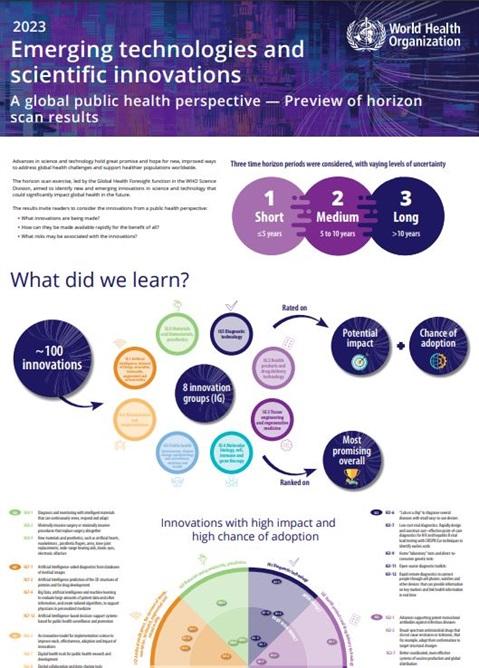
The WHO Science Division conducted a horizon scan exercise to identify new and emerging innovations in science and technology that could significantly impact global health in the future. The article invites readers to consider the innovations from a public health perspective and to assess their potential benefits and risks.
Recent Posts
Tirzepatide Cost Effectiveness: A Winning Strategy for Type 2 Diabetes Management
Tirzepatide Cost Effectiveness in UK T2D Care
Evaluating tirzepatide cost effectiveness reveals significant advantages over semaglutide 1 mg for patients with type 2 diabetes (T2D) inadequately controlled on metformin, based on a
CHMP February 2026 Approvals: New Breakthroughs in Medicines and Biosimilars
CHMP February 2026 Approvals: 12 New Medicines and Biosimilars Advance
The CHMP Febru...
EMA’s mCombriax Vaccine Recommendation
EMA's mCombriax Vaccine Recommendation Ushers in Dual Protection Era
The mCombriax vaccine recommendation from the European Medicines Agency (EMA) marks a milestone for individuals aged 50 and older. EMA has recomm...